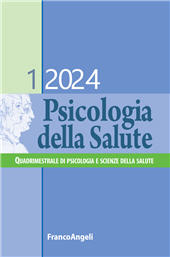University Culture : a quali-quantitative study on the emotional representations of online learning by psychology university students
25-45 p.
The pandemic of covid-19 has led to the conversion from face-to-face to online learning in almost every university in the world. Online learning was perceived by stu-dents as an opportunity and an impediment to the learning process and an obstacle for social contact. The main aim of this research was to explore the representations of dis-tance learning by university students. We collected 127 interviews from university stu-dents and used the paradigm of Emotional Text Mining (EMT) for their analysis. Three factors (Learning Process, University Life, Blended learning) and four clusters (Being in a Relationship, Online learning, Missed Rituality, Process of Adapting) were identified. The factors highlight an unconscious defence mechanism which "separates" the reality of online learning (without relationships) from the reality of the face-to-face learning (with relationships).
The clusters show how university students represent online learning as useful at a practical level, but as an obstacle to social contact and a sense of belonging to the university culture. In addition, the interpretation of the clusters reveals an imma-ture process of adaptation of students to the post-pandemic reality. All these findings highlight face-to-face learning as a place for interaction and social sharing and necessary to feel integrated in university culture. [Publisher's text].
Fait partie de
Psicologia della salute : quadrimestrale di psicologia e scienze della salute : 1, 2024-
Articles du même numéro (disponibles individuellement)
-
Informations
Code DOI : 10.3280/PDS2024-001002
ISSN: 1972-5167
KEYWORDS
- didattica a distanza, emotional text mining, cultura universitaria, intervi-ste, COVID-19


